Search Perspectives
Filter By:
- Cameron Hodges
- Chip Gurkin
- Christine Gonnelli
- Cindy Newberg
- Clayton Batko
- Danelle Lobdell
- Eliana De Leon
- ELN Green Team
- Evonne Marzouk
- Frederick Thompson
- Gayle Hubert
- Hilary Clark
- Hunter Pates
- Jake Krauss
- Janet McCabe
- John Foster
- John Goodin
- John V. Thomas
- Jorianne Jernberg
- Lauryn Joyner
- Maureen Gwinn
- Michael Regan
- Radhika Fox
- Rosemary Enobakhare
- Sandra Rivera
- Sara Eaves
- Sherri Comerford
- Steph Bertaina
- William Wheeler
Displaying 1 - 15 of 32 results
-

Lead in Private Well Water and its Impacts on Children's Health
There is no safe level of lead. Lead can be present in drinking water without any noticeable changes in color or odor. It is the responsibility of private well owners to test their water for lead and to take appropriate measures to mitigate exposure.
- Date:
- By: Sara Eaves
-
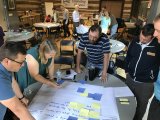
Activating the Building Blocks of Sustainability
One thing I’ve learned through my work with local communities is that they love celebrating what makes them unique. I love learning what they are most proud of and helping them turn their greatest assets into actions that matter for their community.
- Date:
- By: Chip Gurkin
-

Urban Golf and the Partnerships for Progress
In many ways golf is more than just a game. There’s a special place, right down the street from our Region 3 office in Center City Philadelphia, that is reimaging how kids can experience greenspaces.
- Date:
- By: Hunter Pates
-
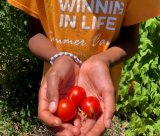
For Local Communities, the Sky is the Limit
Local Foods, Local Places' community-driven approach unleashes local creative minds to envision innovative paths to overcome the complex legacies of social and environmental problems and inequities.
- Date:
- By: John Foster
-

Supporting the Cancer Moonshot Effort at EPA
I learned that one of the best ways to fight cancer is to prevent it from occurring in the first place. EPA supports the Cancer Moonshot effort by understanding and preventing toxic and environmental exposures and preventing more cancers before they start.
- Date:
- By: Danelle Lobdell
-
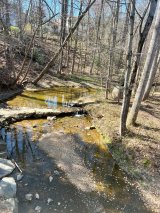
Acting Upstream for Creek and Community
A common threat to streams is runoff from heavy rains that cause floods, wearing away at riverbanks. Across the country, the Green Infrastructure program works with communities to address the effects of stormwater runoff through a variety of programs.
- Date:
- By: Jake Krauss
-

From Peace Corps to EPA
Meet some returned Peace Corps Volunteers who now work at EPA.
- Date:
- By: Clayton Batko
-

Creating Places Where We Love to Live
Designing communities with safe, walkable streets in mind adds to the quality of life and economic vitality of cities and towns.
- Date:
- By: John V. Thomas
-
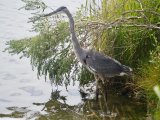
Gaining Perspective on Estuaries
Take a deep dive into the importance of shallow estuaries and the work of the National Estuary Program.
- Date:
- By: Jake Krauss
-

How Community-Led Change is Helping Rural Places and People Thrive
Steph Bertaina provides a personal introduction to the Recreation Economy for Rural Communities program.
- Date:
- By: Steph Bertaina
-

The Impacts of Dynamic Partnerships
The EPA’s mission is mirrored in our interactions with community members and civic leaders and is evident when we tackle some of our most challenging problems.
- Date:
- By: Lauryn Joyner
-

Investing in America to Build a Brighter, Healthier Future
With unprecedented investments, we are moving further and faster than ever before to build a healthier and brighter future for our people and our planet.
- Date:
- By: Michael Regan
-

Fashion Forward: Fabric Recycling and Reuse this Spring
During your spring cleaning this year, EPA’s Green Team hopes you will consider the four Rs and contemplate the impact your shopping habits have on the environment.
- Date:
- By: ELN Green Team
-

5 Ways EPA is Protecting People and the Planet
These past few months, EPA has moved further and faster than ever before to build a healthier and brighter future for all.
- Date:
- By: Michael Regan
-
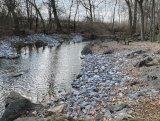
Bringing a Local Stream Back to Life
When we start with clean water, we instantly reduce the amount of nutrients reaching larger bodies of water. Paddy Run may be small, but the smallest streams often have the biggest impact.
- Date:
- By: Christine Gonnelli
